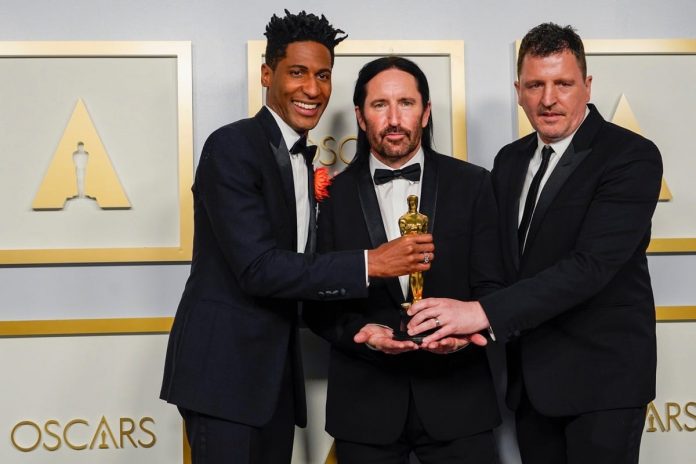“What’s deep is that God gave us 12 notes. It’s the same 12 notes that Duke Ellington had, Bach had, Nina Simone (had) …This moment is a culmination of a series of miracles. It’s so incredibly powerful to stand here and the lineage that we come from, the lineage in this film … I’m just thankful to God for those 12 notes.”
Thus the words of Jon Batiste on receiving, along with Trent Reznor and Atticus Ross, an Oscar for the score to the Disney-Pixar animated film Soul, which portrays the experiences of schoolteacher Joe, who dreams of becoming a professional jazz musician, falls down a manhole and ends up bouncing around the Great Beyond and the Great Before.
Batiste is a pianist, so allowances should perhaps be made for him omitting to mention that exploitation of the zone between the notes – the blue notes, the microtones – has been key to jazz expression. Reflecting on the absence from the piano of the note-bending capabilities of stringed and wind instruments, quite a few jazz pianists have talked of attempting to mimic the bent note by leaning rhythmically into notes or blending two pitches.
Then again, jazz-style subversion and disruption of the well-tempered clavier might not have been high on the agenda of a relatively mainstream film such as Soul.
Batiste is credited with providing what producer Dana Murray calls “New York jazz”. That turns out to be principally very good bebop played by musicians including Harvey Mason and the 95-year-old Roy Haynes.
Visually speaking the producers went to considerable lengths to achieve musical authenticity. They filmed Batiste’s hands in action at the keyboard in order to inspect hand movement and articulation in detail. Animator MontaQue Ruffin said “This allowed the animator to create a first pass of general hand placement, and once that was tied down, the animator then layered in the fingers and other nuance details.” It looks more accurate than most human miming as a YouTube short on the film’s music shows.
The film’s title resonates only incidentally with jazz, the titular soul being of the ethereal rather than soul-jazz kind. The team were inspired to make Joe an aspiring jazzman when they discovered the old jazz bromide of Miles Davis making an outré chord from Herbie Hancock sound right. Hancock is reported to have said “I judged what I had played. Miles didn’t.” For director Pete Docter this was the perfect analogy for the film’s theme – don’t judge, make good of what you’re given.















